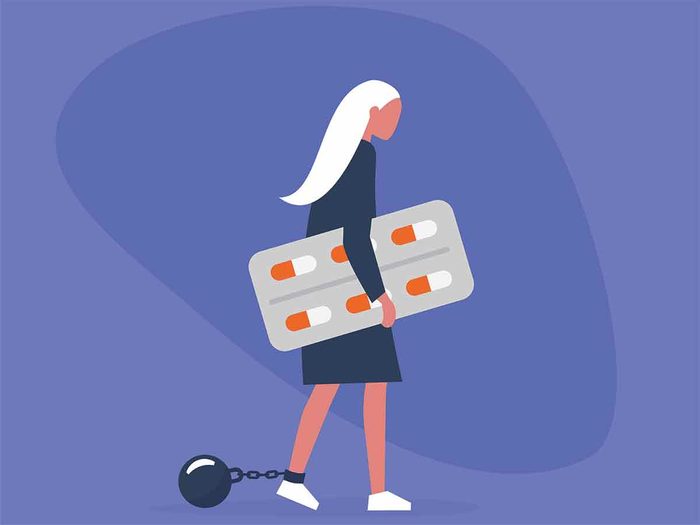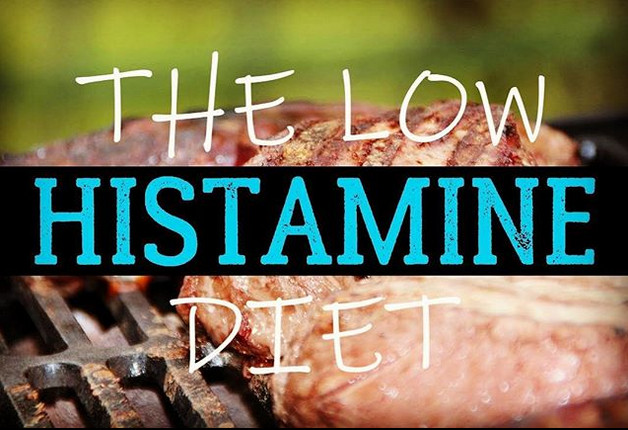Antibiotics Increase Risk for Histamine Intolerance

Antibiotics have been very useful for society, but after roughly 80 years, we are finally paying the price. Some have developed worsening allergies due to antibiotic use, others have chronic gut problems, and now many are battling something called “histamine intolerance”.
In this article, I will explain how antibiotic use can lead to histamine intolerance. After, I will provide scientific studies to support the statements made. To conclude, I will answer several questions about antibiotic use and its correlation with histamine. Refer below for details:
How Antibiotics can Lead to Histamine Intolerance
Impairs Vitamin K Production
Antibiotics can kill vitamin K producing gut bacteria, causing a deficiency to occur (1). Vitamin K is critical for shuttling calcium to the bones and right places. When a deficiency occurs, this leads to a build up of calcium in the blood. Elevated blood calcium then leads to increased probability of histamine release from the mast cells.
Reduces Vitamin D Levels
Some antibiotics can dramatically reduce vitamin D levels (2), while others can activate the pregnane X receptor, there by disrupting vitamin D metabolism and function (3). Lower levels of vitamin D can lead to an overactive mast cell population and dysfunctional immune response.
Depletes Intracellular Magnesium
Many antibiotics can decrease intracellular levels of magnesium (4), which can be highly detrimental. Not only is magnesium the number one nutrient for stress defense, but it’s also a precursor to DAO enzyme production. Without enough DAO enzyme, and low stress resistance, you will eventually have elevated histamine.
Kills Immune Modulating Bacteria
Broad spectrum antibiotics have been shown to kill bifidobacterium (5). This genus is essential for keeping the immune system modulated. Once levels of these important organisms diminish, you will soon have an overactive mast cell population, and elevated histamine.
Decreases Butyrate/SCFA Levels
Reduces levels of butyrate levels by killing SCFA producing bacteria (6). This loss of butyrate leads the enterocytes to use glutamine as supplementary fuel (7). Once glutamine levels become low then intestinal permeability is likely to increase. This then leads to a higher chance of food sensitivities, histamine release and mast cell activation.
Increases Risk of Other Pathogens
By reducing levels of important bacteria like akkermensia and bifidobacterium, the gut loses it’s first line of defense against pathogens. This leaves the body vulnerable when exposed to pathogens. In addition, antibiotics have been shown to upregulate genes and increase the virulence of certain pre-existing infections. (8) This allows them to create more symptoms within the body.
Reduces Glutamine Levels in Gut
By eliminating many of the butyrate producing bacteria in the gut, antibiotics alter the SCFA levels in the body. This forces enterocytes to use glutamine as a source of fuel (9). Once glutamine levels get low, entercytes become less effective in absorbing nutrients, creating deficiencies in the host.
Lowers DAO Enzyme Production
Many antibiotics are shown to inhibit the release of DAO enzyme inside the human body (10). Since your body needs DAO enzyme to break down histamine in the body, you end up flooded with it. This can trigger various symptoms, alter genetic expressions, and leave you prime for chronic inflammation.
Decreases GABA/Serotonin Levels
Reduces population of bifidobacterium and other organisms responsible for creating GABA/serotonin in the gut (11). Little do most know, the majority of serotonin is made in the gut (12). Once you effect the levels of these important organisms, it could effect your quality of life and even your personality.
Creates Lasting Oxidative Stress
Antibiotics can cause elevated oxidative stress markers in the blood, oxidative tissue damage, and can up-regulate expression of key genes involved in antioxidant defense (13). This lack of antioxidants increases toxic burden which causes the mast cells to become far more reactive to anything that enters the blood.
Increases Gut Permeability
Many antibiotics kill the bacteria that are responsible for regulating the immune system (14). Once the immune system becomes overactive, then the mast cells start to secrete more histamine in the gut, triggering system wide inflammation. This creates a cycle of mast cell activation and histamine release that is hard to escape.
Induce Mast Cell Degranulation
Typical antimicrobials have been shown to induce mast cell degranulation, triggering the release of histamine and other inflammatory chemicals.(15) This is rough on a normal healthy person, let alone the person who is already battling mast cell or histamine issues. So while it may be killing certain bacteria in your system, it’s also aggravating the immune system.
Common Questions- Antibiotics and Histamine Intolerance
What diet is best following antibiotic use?
The low histamine diet is the best choice following a course of antibiotics. The reason being, you will not be adding fuel to the fire. When you add foods which contain histamine, they could trigger low grade sensitivities. This will aggravate the mast cells further, which will then reinforce the inflammatory cycle.
Can antibiotics cause histamine intolerance?
In my experience, antibiotics can trigger histamine intolerance. It usually doesn’t happen the first time you take them, but it all depends on the person. Usually the person has a pre-existing infection that upregulates it’s genes and virulence due to the presence of the antibiotic. This then leads to an overgrowth of the infection, which increases histamine release from the mast cells. Coupled with an impaired histamine degradation process, this soon becomes leads to “histamine intolerance”.
How long is the gut bacterial balance effected?
Studies have shown that antibiotics can cause PERMANENT changes in gut bacteria diversity (16). Best case scenario, you have 3-6 months until the gut microbiome fully recovers after antibiotic use, unless you supplement properly. In the next question, I will address the idea strategy for recovering from antibiotics.
How do you fix your gut after using antibiotics?
You combine a the right diet with the proper probiotics. In terms of diet, you want to avoid packaged foods with preservatives. These have high likelihood of altering your gut bacteria and triggering inflammation. In addition, you want to follow the low histamine diet as much as possible. In terms of probiotics, I would supplement with a bifidobacterium like “probiota bifido” from Seeking Health. This is key since bifidobacterium are the first to go, and are critical for modulating immune function.
Summary- Antibiotic Induced Histamine Intolerance
As you can see, antibiotic use can be detrimental if there is an underlying issue already going on. The problem is, the side effects are not typically noticed until 45 days after stopping use. This gives the unfriendly bacteria enough time to replicate, eventually leading to symptoms. Unfortunately, I know this all too well give my history of autoimmune disease and heavy antibiotics.
In summary, antibiotics are a double edged sword. On one hand, antibiotics are still the best way to remove severe acute infections. On the other hand, they compromise several processes within the body which can put many people at risk long-term. Do yourself a favor and be smart about your use of antibiotics. Otherwise, you may end up a member of the “histamine intolerance” club, like millions of others.
Matt Nedin
EndSickness.org
Phone: (734) 846-8619
Email: endsickness@gmail.com
WhatsApp: +17348468619









